Will Martika Ramirez Escobar’s debut feature ‘Leonor Will Never Die’ bring home the bacon at Sundance?
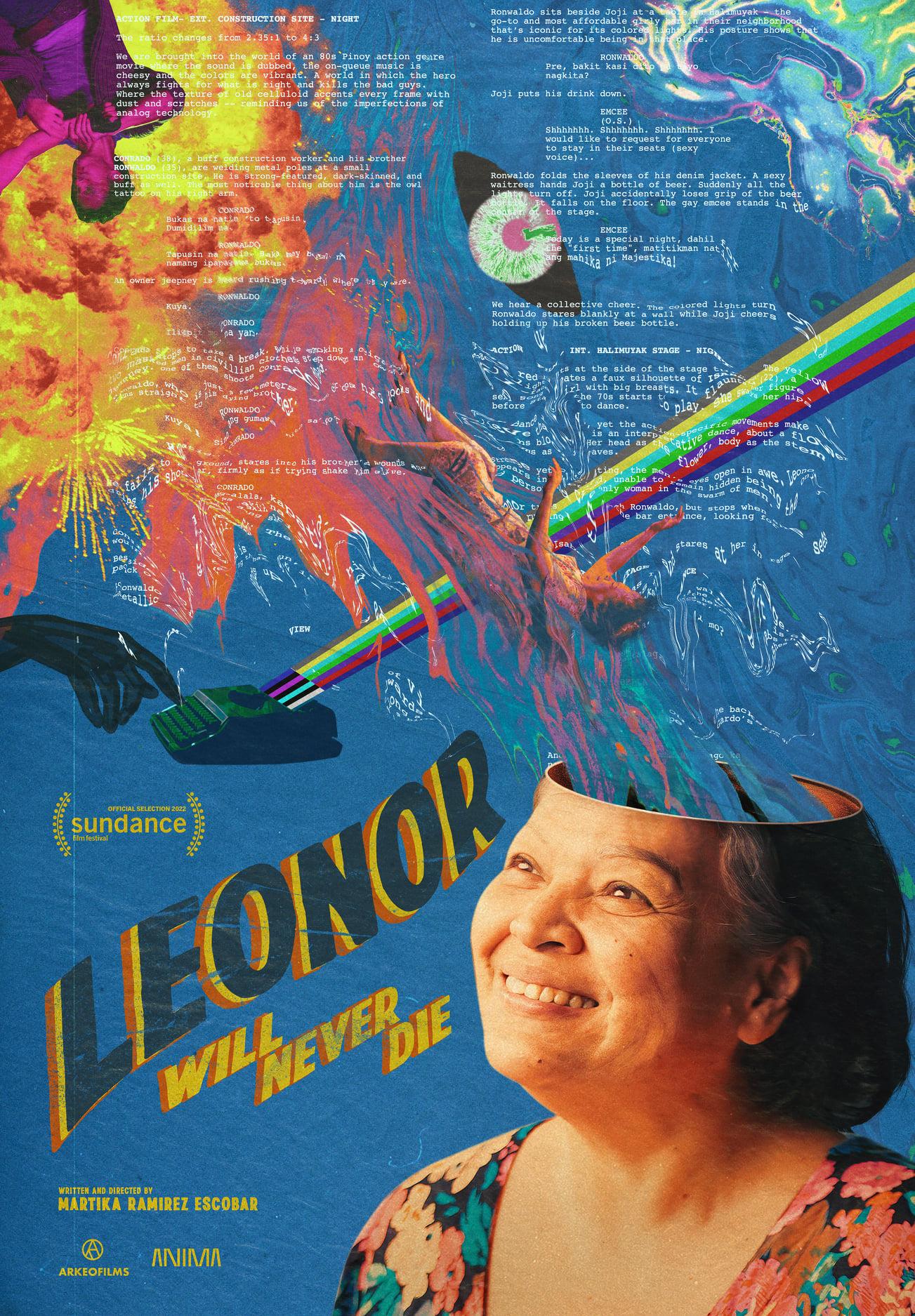
Los Angeles — Dreams are made and fulfilled at the Sundance Film Festival, the largest independent film festival in the United States.
This is where a number of careers started and flourished.
Sundance Film Fest, held at Utah's snowy Park City, showcases feature and short films, American and international dramatic films, as well as documentaries.
Sixteen years ago, Auraeus Solito’s “The Blossoming of Maximo Oliveros” made waves at the Sundance Film Fest in the World Cinema-Dramatic Competition Category — the same one that 29-nine-year-old University of the Philippines graduate Martika Ramirez Escobar’s debut feature, “Leonor Will Never Die,” is currently competing in.
Will it make a similar splash?
Already receiving great reviews this early from critics, Martika’s drama-comedy is about Leonor Reyes (portrayed by Sheila Francisco), a grandmother who was once a major player in the Filipino film industry after she created a string of successful action films.
Missing her previous exciting life as a writer-director, Leonor is now relegated to the realities of unpaid electricity bills and the struggles of facing violence out in the streets.
When Leonor reads an ad looking for screenplays, she tries to look for her unfinished script about a young Ronwaldo (Rocky Salumbides) who is trying to avenge the death of his brother in the hands of thugs. Things get out of control and crazier still when Leonor gets into an accident, goes into a coma and her imagination runs wild.
We were able to interview the charming writer-director-executive producer Martika and below are excerpts of our conversation with her by Zoom.
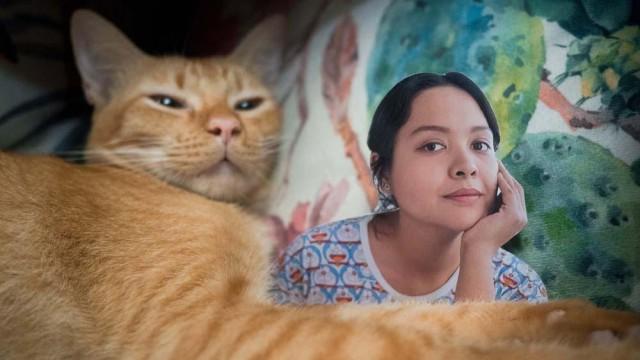
Congratulations on your movie getting into Sundance. What was your reaction when you found out? How did you find out about it?
I was really confused when I first got the email because I didn't expect anything. So when I read it, I thought it was a rejection letter. I was on the way to the shoot of our executive producer, I'm his camera operator for his film, and that's when I found out. That was, through the day, I realized that it is real. "Okay, maybe it's real." But until now, to be honest, it feels surreal. But I'm really grateful and thankful because this is a big deal for us since we worked on this film for eight years.
Wow! Eight years of your life for one movie. Are you ready to spend another eight years for your next project?
Super! But I hope it will not be eight years. I think I've learned a lot for me to know better the next time I make a film. I don't know.
What were the lessons you learned while doing "Leonor," your first feature film?
I think the biggest take away is that filmmaking is a process that involves relationships with people and places and everything around you. I used to think that when you're a director, you just direct everything. But really, it's the collaboration of everyone and it's really the work of the whole team. It's not just mine as the writer-director. So yeah, that's one of the takeaways.
And also, I realized making this film, the process of making a film allows me to learn more about life in general and people — and that's the reason why I like making movies. It's not just to entertain and it's not just to earn. It's like a teacher.
You wear many hats here — cinematographer, director, writer, executive producer of this film. What is the most challenging and what is the most fulfilling role for you?
Yeah. I'm not the cinematographer, but I work as a cinematographer as my other job. So, our cinematographer for this film is Carlos Mauricio.
But the most difficult job for me is being a writer because I'm a self-confessed bad writer and I'm writing about a film about a good writer. So that was challenging, and that took like five years. Five years.
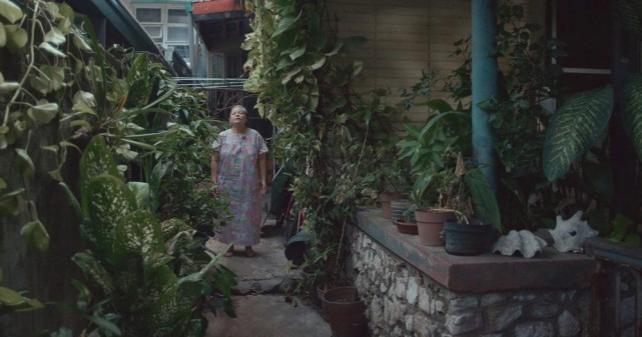
Five years of writing.
Yes, five years of writing and asking help from people and attending workshops.
I read that you attended several workshops. What for you was the workshop that gave you a lot of lessons to be able to produce this movie?
All of them have equal contribution to my being a writer but I think it's Ricky Lee and Bing Lao who have the most influence on me as a writer because they taught me certain methods and how to navigate my voice in writing. So, the methods are really important as a scattered-brain person.
What made you decide to become a filmmaker? What point in your life did you decide, "I want to be a filmmaker?" I know a lot of Filipino parents want their children to become doctors, lawyers or accountants. Did your parents have any reservations of you becoming a filmmaker?
Super. There was a time when they discouraged me to pursue filmmaking because it's uncertain and we're not sure: As a freelancer, how am I going to sustain a future? But luckily, they trusted me enough. And I think my experiences in college helped support that trust because I made a few short films and those short films went to student festivals, so they sort of thought, "I think that maybe she can try."
But the turning point when I decided to be a filmmaker I think was in high school when we had this class project. We had to make a video for Beowulf, the story. We had to summarize it through a video, so I made a small clay animation video with my classmates. I think when my teacher saw it, I think she liked it. That's the moment when I said, "Oh, I enjoy this. It's tiring. It takes up a lot of time and brain cells, but I enjoyed every step of it, so I'd like to do this forever."
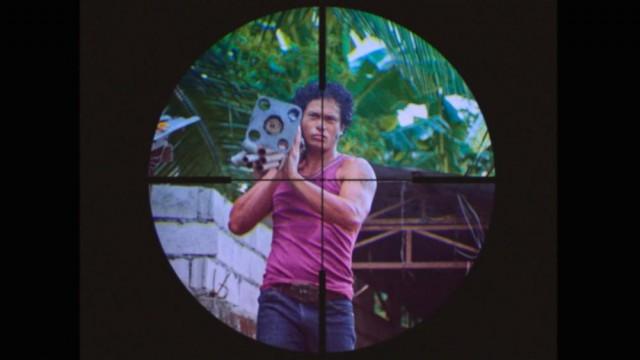
How would you describe your movie? IMDb says it's a drama but I found a lot of comedic moments there. And there's also singing and dancing and love romance.
It's a bizarre trip. I don't think it's the type of film that fits into one genre because it's the unity of different genres. So yeah, it's a crazy, crazy ride.
And I know you also like Kidlat Tahimik, Ishmael Bernal and Mike de Leon, and I wonder. When I was watching the movie, I saw a lot of Kidlat Tahimik humor in your style. How would you describe the influences of all these filmmakers?
I don't know them in person, but it feels like I know them through their films. I don't just hear them. I don't just see them. I just feel their presence, and that's what I try to do when I make my films. I try to be as close to the material and I try to reveal as much of myself and the people around me through the material. So maybe it's that.
You wrote the script, which I found very ingenious because it's a movie within a movie. Can you describe the challenges and where did you get that concept?
The film within a film idea came from the initial concept. My friend and I wanted to create a Filipino action Lola (grandmother). And when I needed a narrative for the action Lola, I thought, "Why not an action writer inside an action film?"
So that's when the film within the film happened, but it really evolved into something else when I got lost along the way. So, there's also that other world where I'm present. It's a film within a film within a film that naturally just turned into that complex thing.
Would you describe yourself as a frustrated actress too?
Not really. More of a frustrated writer until today.
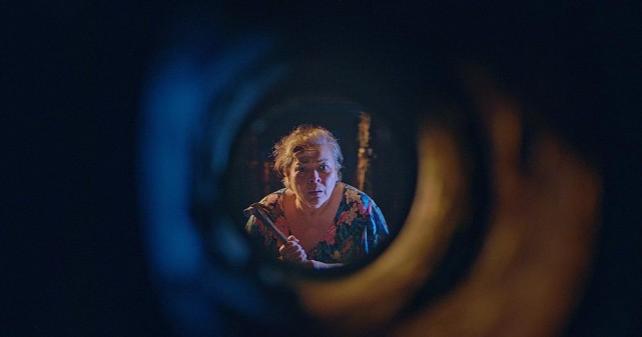
You mentioned the action lola, who is portrayed very convincingly by Sheila Francisco. Can you talk about how you found her and what are the traits that made her your perfect character?
We had a long casting process and Tita Sheila was a recommendation from my producers. They saw her in "Ang Huling El Bimbo" and they were like, "Hey Marty, you have to let Sheila read."
And then when she read the script and I met her in real life, she just possessed this persona that was really close to the character I was writing. And for that alone, it's something special.
One of the factors I used in deciding on who to cast is usually when they read, if they feel like a real person, like a real, real person, I just know there's something about them. So that's what happened with Tita Sheila. She read and she just possessed this realness to her. I also think the tenderness and her off-camera persona. So, it's a lot of things, but really, it's vibes.
She's great. And also, Rocky Salumbides was a revelation. He's not just a good-looking guy, action star, but he also knows how to dance. Was that a requirement for you? What traits did you like about him that made you cast him?
What I like about Rocky is that he's really game to do anything. We are both on the same level of good crazy, so we get along well. And that scene you mentioned, it's improvised or spontaneous.
Before the take, I just told Rocky, "Hey, after this take, just dance," and then he was like, "Sure." He was nervous, but I mean, he did well. So that's what I like about him. He's ready to do whatever. It's mutual trust between me and him.
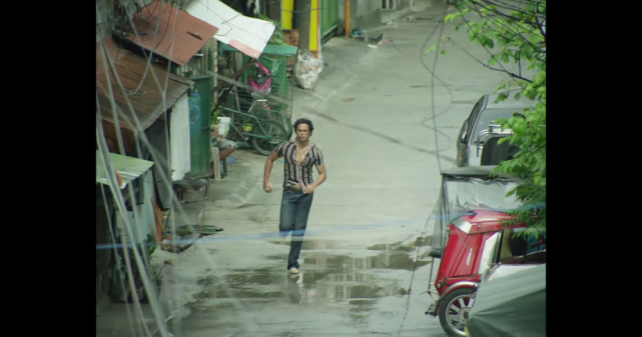
That reminded me of some Bollywood films. Was it influenced by some Bollywood movies you saw?
Not really, but Filipino films have action sequences too, and musicals. When you see a person dancing, it's like you also want to dance.
Aside from having limited budget, what are the other challenges of an indie filmmaker?
Wow, that's hard because usually it's really the budget that gives us all the other challenges. But perhaps it's sticking to the project and believing in yourself that you can make the film even without the right resources.
I think there's always a way. There's a lot of ways to compromise, a lot of ways to ask for help, so I think that that's a challenge. A lot of people, filmmakers, even myself, there are times when we want to just give up and just say, "Oh, maybe it's not meant for us." But if you really, really want to make a film and you feel the urgency, you'll find yourself finding ways and how to do it. And that's what happened. That's why it took us eight years.
You mentioned about giving up. At what point in the filming did you say, "Oh, I want to give it up. It's not going anywhere"?
Three years before we shot the film. I've been pitching the project with my producers in different labs and companies, private investors, and we just can't find the right funders for the film. And I'm not that rich to fund the film myself, so that made me think, "Maybe this is not meant to be made," or "Maybe in the future." So that was a challenge.
But luckily, things fell into place once we got one grant, and then maybe other people thought, "Oh, maybe it's not that bad of a project," so more people invested in it.
What do you do when you're not making movies? How do you try to relax?
I'm always thinking about making films, but what I do when I'm not thinking of films, I usually play with my pets and play the guitar and bake cookies. It's my pandemic sanity source, just homebody stuff.
What pets do you have? I know you always have a picture with your cat.
Yeah, I have a cat and dogs. I have a turtle. I have birds and fish. It's like a mini zoo.
So probably your next project is a cat project.
Maybe. Good idea.
Now that Sundance is virtual, are there any regrets? Or how would you get the most out of this Sundance virtual experience?
Regrets? I don't have any regrets. And I'm surprisingly happy and okay with the festival shifting to a full online festival. I think it's because getting into Sundance was already beyond a dream, so traveling there is just a bonus. I never really expected anything from this film, so I'm really happy and I think that everything that's happening is enough already. But my team and I were supposed to travel. I would've wanted for us to celebrate there together. But it's okay here. I enjoy being at home and watching the films. I've watched a few short films yesterday.
Is the film going to be shown in other international film festivals?
So far, not yet. But we have a sales agent on board which is great, and they're the ones who are going to find more homes for our film.
When you said, "It's a wrap," how was the celebration or your wrap party?
The wrap party, from what I remember, it felt like it was not a shoot. There were drinks and loud music and speakers and people cheering. I think in my eyes, it was a fun and chill shoot so on our last day, we just celebrated the way we would. We were just playing around and laughing and taking lots of pictures because it ended well, and I think people were happy to be together in this project.
After this experience, what other projects are you coming up with?
I have a lot of works in progress, so it really depends on the right time and finding the right people. I do want to make a next feature film, but that will probably take at least four years, hopefully not eight years, and I still do projects as a cinematographer for films and advertising.
And what are your hopes for the Sundance Film Festival awards?
Oh, I have no expectations. If it happens, then it happens and we're very lucky, because we've been lucky so far. But we just hope that a lot of people will watch our film because it's hard to find an audience. Especially coming from the Philippines, I have only a few friends and relatives in the U.S. I don't know who to invite. — LA, GMA News




